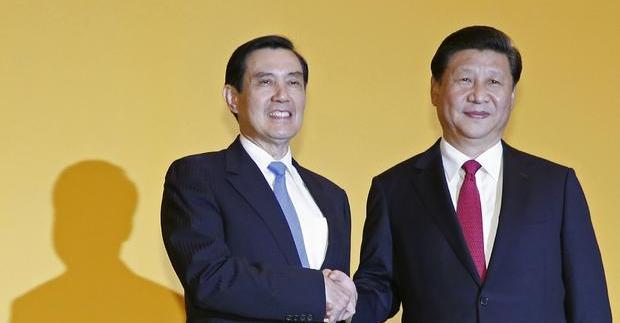【本會黃奎博秘書長就「馬習會」接受美國CBS訪問】
Kwei-Bo Huang, Secretary-General of the Association of Foreign Relations of Taiwan and an associate professor of Diplomacy at the National Chengchi University told CBS News that Taiwan's interest is two-fold: "to expand Taiwan's international space and to maintain Taiwan's economic competitiveness."
Taiwan's interest in the TPP, he said, is "urgent but problematic."
"A key factor is the influence of Beijing, who has exercised its political and economic power to prevent Taiwan from achieving its current foreign policy objectives," Huang said.
Evan Osnos, staff writer for The New Yorker and author of Age of Ambition: Chasing Fortune, Truth, and Faith in the New China," told CBS News that if the opposition wins and Taiwan's next president "is likely to keep a distance from the mainland, as it appears she will, then this will be Xi's best opportunity for a symbolically significant imprint on the Taiwan issue. He wants to maintain the status quo, and this is part of that process."
Huang points out that Taiwan's Ma has negotiated over 20 agreements with Xi, and "would like to further consolidate the peaceful atmosphere and lower the level of antagonism by meeting with Mr. Xi on an equal footing."
Richard Bush III, Director of the Center for East Asia Policy Studies at the Brookings Institution told CBS News that Taiwan "asserts that it is a sovereign state. To justify that claim, it's important to have an international personality. One of the ways of doing so is to have diplomatic relations with a modest number of countries. If Taiwan were to lose its diplomatic partners it weakens the claim and would be a domestic psychological blow."
Taiwan tried to muster support in the past for United Nations recognition, but appears to have given up the bid for membership.
"Since Taiwan's U.N. bid had cost a lot (mobilizing diplomatic allies during the checkbook diplomacy era) and since the chance for Taiwan to participate in the U.N. as an independent sovereign state is close to zero, the Ma administration then decided to change the strategy by focusing on UN's specialized agencies," Huang said.
Bush was more blunt. He called a Taiwanese quest for U.N. recognition "a fool's errand and a waste of resources," and noted, "it also pissed Beijing off."
報導全文請參閱以下網址,歡迎點閱!
http://www.cbsnews.com/.../historic-meeting-china-taiwan.../
Kwei-Bo Huang, Secretary-General of the Association of Foreign Relations of Taiwan and an associate professor of Diplomacy at the National Chengchi University told CBS News that Taiwan's interest is two-fold: "to expand Taiwan's international space and to maintain Taiwan's economic competitiveness."
Taiwan's interest in the TPP, he said, is "urgent but problematic."
"A key factor is the influence of Beijing, who has exercised its political and economic power to prevent Taiwan from achieving its current foreign policy objectives," Huang said.
Evan Osnos, staff writer for The New Yorker and author of Age of Ambition: Chasing Fortune, Truth, and Faith in the New China," told CBS News that if the opposition wins and Taiwan's next president "is likely to keep a distance from the mainland, as it appears she will, then this will be Xi's best opportunity for a symbolically significant imprint on the Taiwan issue. He wants to maintain the status quo, and this is part of that process."
Huang points out that Taiwan's Ma has negotiated over 20 agreements with Xi, and "would like to further consolidate the peaceful atmosphere and lower the level of antagonism by meeting with Mr. Xi on an equal footing."
Richard Bush III, Director of the Center for East Asia Policy Studies at the Brookings Institution told CBS News that Taiwan "asserts that it is a sovereign state. To justify that claim, it's important to have an international personality. One of the ways of doing so is to have diplomatic relations with a modest number of countries. If Taiwan were to lose its diplomatic partners it weakens the claim and would be a domestic psychological blow."
Taiwan tried to muster support in the past for United Nations recognition, but appears to have given up the bid for membership.
"Since Taiwan's U.N. bid had cost a lot (mobilizing diplomatic allies during the checkbook diplomacy era) and since the chance for Taiwan to participate in the U.N. as an independent sovereign state is close to zero, the Ma administration then decided to change the strategy by focusing on UN's specialized agencies," Huang said.
Bush was more blunt. He called a Taiwanese quest for U.N. recognition "a fool's errand and a waste of resources," and noted, "it also pissed Beijing off."
報導全文請參閱以下網址,歡迎點閱!
http://www.cbsnews.com/.../historic-meeting-china-taiwan.../
Images 1 of 1




 256 bit SSL Encryption
256 bit SSL Encryption